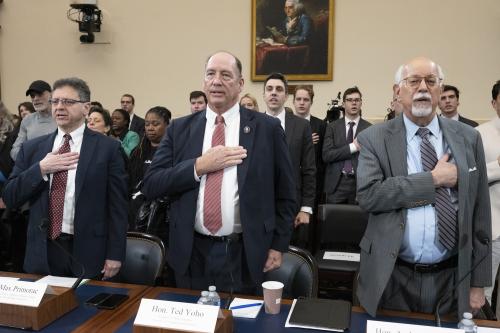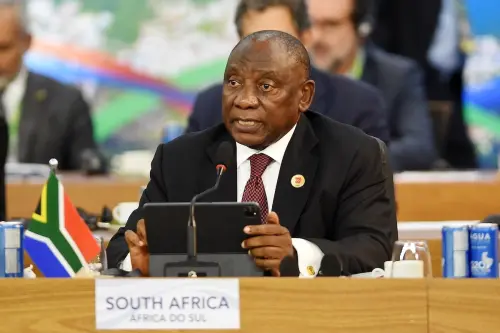Kenya Rebases GDP and Becomes Ninth-Largest African Economy
On Tuesday, Kenyan Planning Minister Anne Waiguru announced that Kenya’s gross domestic product (GDP) is 25 percent larger than previously thought after it was recalculated using updated statistics. Kenya’s “rebased” GDP—which takes into account a revised base year of 2009 (from 2001) as well as better data from the high-performing sectors of agriculture, manufacturing, telecommunications and real estate—is now estimated at $53.3 billion (compared to $42.6 billion before the revision). This makes Kenya the ninth-largest economy in Africa and classifies it as a middle-income country since its gross national income (GNI) per capita, $1,160, has surpassed the World Bank threshold of $1,036 to qualify. According to Bloomberg, the boost in GDP also means that the Kenyan government will likely have an easier time accessing commercial loans since “a higher figure for GDP will help to lower Kenya’s debt ratios.” Kenya’s move to revise its GDP comes just months after Nigeria rebased its GDP in April and became the largest economy on the continent.
Despite this boost in GDP, many observers have noted that this revision does not mean that Kenya has overcome its economic challenges: More than four in 10 Kenyans live in poverty according to the World Bank, and Kenya still has a considerable way to go to achieve 10 percent growth annually as outlined in its Vision 2030 Agenda. Its 2013 growth rate after the rebasing is still only 5.7 percent.
Mo Ibrahim Index Reveals Slight, Though Lower Than Recent, Progress in African Governance Performance
This week the Mo Ibrahim Foundation released the 2014 Ibrahim Index on African Governance, highlighting incremental improvement in principles of good governance across the continent. The index, which gives national, regional and continental scores from 0 to 100 related to four governance indicators (i.e., human development, safety and rule of law, human rights and sustainable economic opportunity), revealed that continent-wide governance performance increased by just 0.9 percent over the past five years, representing a slight decrease from the previous five years’ (2005-2009) growth of 1.2 percent.
Over the past year, however, some countries with historically low governance scores improved significantly, including Côte d’Ivoire and Guinea (which are in the process of recovering from political instability) as well as Niger and Zimbabwe. Other countries with strong governance records made negligible improvements or declined in their scores, (namely Botswana, Cape Verde, Mauritius, Seychelles and South Africa). Consequently, Mo Ibrahim, the founder of the index, called on African governments to prevent this sort of “backsliding” and “remain vigilant and not get complacent.” Furthermore, the index suggests a shift in the “drivers of governance improvements, from economic to political,” according to the Institute of Security Studies, as gains in sustainable economic opportunity and human development have been relatively limited in recent years when compared with progress seen in political participation and human rights.
Encouraging Developments in South Sudan’s Peace Process
Direct discussions between representatives of the warring parties in South Sudan are taking a positive turn, according to the Sudan Tribune. Over the weekend, President Kiir’s government reportedly agreed to implement a federal system of governance in the country as called for by rebel negotiators, signaling a promising step towards a political settlement.
Still, it remains unclear whether the parties will reach a final peace agreement before the deadline set by the mediating body, the Intergovernmental Authority on Development (IGAD), expires in mid-October. On Tuesday, U.S. Ambassador to the United Nations Samantha Power warned both Kiir and Machar that if a peace deal is not struck by then, they could expect the U.N. Security Council to issue sanctions against them. Meanwhile, on Thursday, both warring parties accused one another of launching new attacks in Unity and Upper Nile States, violating the current ceasefire.
The Brookings Institution is committed to quality, independence, and impact.
We are supported by a diverse array of funders. In line with our values and policies, each Brookings publication represents the sole views of its author(s).



Commentary
Africa in the News: Kenya Becomes a Middle-Income Country; Mo Ibrahim Index Released; South Sudan Peace Talks Yield Promise
October 3, 2014